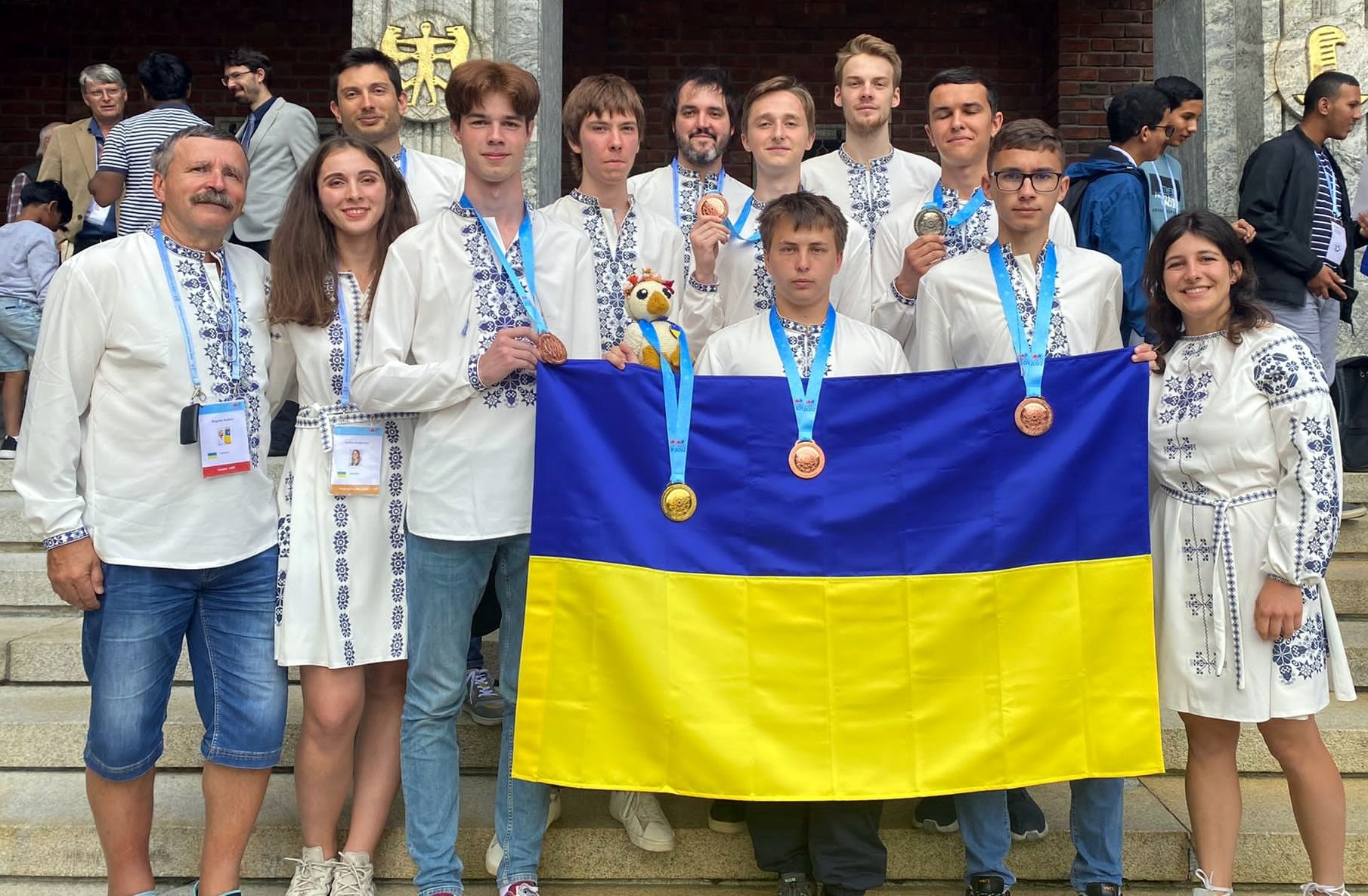 The 63rd International Mathematical Olympiad 2022 (IMO) took place in Oslo, Norway, on July 6-16. Reportedly, 589 high school students from 104 countries participated in it, including the Ukraine’s team.
The 63rd International Mathematical Olympiad 2022 (IMO) took place in Oslo, Norway, on July 6-16. Reportedly, 589 high school students from 104 countries participated in it, including the Ukraine’s team.
Ukraine came 17th out of a total of 104 competing countries that took part. In particular, Ihor Pylaiev won a gold medal, Sviatoslav Denyskov earned a silver medal, and four bronze medals went to Anton Havryliuk, Vadym Haseiev, Semen Andriiets and Ivan Bortnovskii.
This year 10 students took the absolute first place, as they solved all six problems and got full marks. Among them was Ukrainian team member Ihor Pylaiev who turned out the only highest-scoring European contestant. Well done Ihor! Like the Olympics, the Olympiad is not just about national pride, but national improvement.
The Department of Mathematical Analysis and Probability Theory at Igor Sikorsky Kyiv Polytechnic Institute (KPI) had been helping the Norway’s Ministry of Education and the University of Oslo make preparations for the math Olympiad. In 2018 the Ukrainian-Norwegian Winter School on Stochastic Analysis, Probability Theory and Related Topics (http://matan.kpi.ua/uk/2018/02/oslo-winter-school.html) was organized within the framework of the project on Norwegian-Ukrainian cooperation in mathematical education. During this winter school KPI academics shared their experience to found and run mathematical societies of talented youth. Further, the Ukrainian-Norwegian training camp Classical and Modern Mathematical Problems for secondary school-age and university students (http://matan.kpi.ua/uk/2021/10/training-camp-cammp-oslo.html) was set up in 2021 to share KPI’s math Olympiad experience with Norwegian colleagues and deliver several lectures on the classical and modern mathematical problems that form a basis when compiling the set of problems for each Olympiad.
It is worth noting too that this math Olympiad has been organized up to high standards. It was a significant event in Norway. The streets of downtown Oslo were decorated with IMO 2022 banners, which put greater emphasis on the grandeur of this event.
In addition, an original cultural program was organized for the participants in IMO 2022. They visited the vast National Museum; the Ski Museum; Holmenkollen, the highest point in Oslo; and the Tysenfryd amusement park, which is particularly popular with Norwegians.
The International Mathematical Olympiad is a contest for high school students, and each country can send up to six participants. It was first held in Romania in 1959, and has since been held every year except in 1980. IMO 2020 and 2021 were purely digital events.
The IMO content ranges from extremely difficult algebra and pre-calculus problems to problems on branches of mathematics not conventionally covered in secondary or high school and often not at university level either, such as projective and complex geometry, functional equations, combinatorics, and well-grounded number theory, of which extensive knowledge of theorems is required. Calculus, though allowed in solutions, is never required, as there is a principle that anyone with a basic understanding of mathematics should understand the problems, even if the solutions require a great deal more knowledge. Supporters of this principle claim that this enables more universality and creates an incentive to find elegant, deceptively simple-looking problems which require much ingenuity to net all points for a given IMO problem.
Although the selection process differs by country, it often consists of a series of tests which admit fewer students at each progressing test. Awards are given to approximately the top-scoring 50% of individual contestants. Teams are not officially recognized – all scores are given only to individual contestants, but team scoring is unofficially compared more than individual scores. Contestants must be under the age of 20 and must not be registered at any tertiary institution. Subject to these conditions, an individual may participate any number of times in the IMO.
